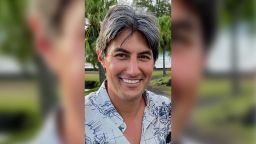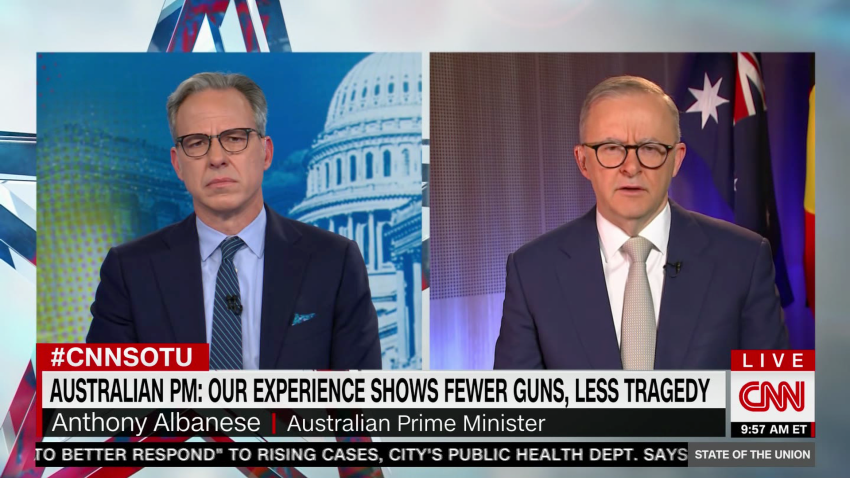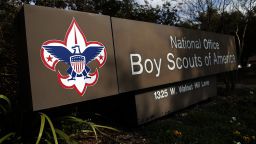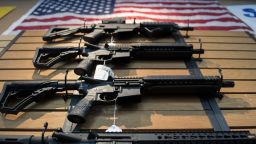Editor’s Note: Naka Nathaniel is a former New York Times journalist and an Eagle Scout who was named Cubmaster of the Year in Atlanta in 2017. The views expressed in this commentary are his own. View more opinion on CNN.
An 11-year-old Boy Scout, Manuel ‘Manny’ Carvalho, was killed by a gunshot on August 28, at Camp Honokaia – where my son’s troop used to meet every week. A police investigation determined that during an official Boy Scouts of America (BSA) event at a scout camp rifle range, the boy was accidentally killed after he was shot by another unsupervised boy who was handling his parent’s loaded semi-automatic assault rifle. No charges have yet been filed related to the incident, though potential offenses against three adults are being reviewed by prosecutors.

In a statement to CNN, BSA said it has “provided support for the family and Scouting unit” in the wake of Carvalho’s death and noted that it is cooperating with law enforcement to investigate the incident.
Since Carvalho’s death, my family has had a serious debate about whether to continue in scouting. We have repeatedly questioned whether BSA’s values are in line with our values. We’ve participated in meetings with my son’s troop, and I’ve talked with scout executives.
While BSA has acknowledged that Carvalho’s death was “due to a reportedly accidental discharge of a firearm while involved in a Troop activity at Camp Honokaia,” its policy on firearms for scouts remains unchanged. (In response to outreach from CNN, BSA said: “Teaching youth and adults firearms safety has been a core of the Scouting program for over one hundred years. We constantly evaluate our programs to ensure that firearms safety and responsible use meet the highest standards.”)
Simply put, guns and children don’t go together. Children aren’t consistently responsible or vigilant enough to be trusted with weapons that can instantly kill. Yet, BSA’s “Guide to Safe Scouting” allows elementary-age school kids, including first graders, to use BB guns and air rifles (meanwhile, pocketknives aren’t allowed until third grade); middle schoolers can use .22 rifles, muzzleloaders and shotguns; and high schoolers can use pistols and large-bore rifles, and participate in “Cowboy Action Shooting,” which is using two firearms at the same time.
Speaking as a parent and a long-time adult leader of Scout units, I’ve been disappointed by the lack of communication from BSA regarding this incident. BSA has let down the volunteers it relies on to run the program by not giving them guidance on how to speak with the children in the wake of the tragedy. And, speaking as an Eagle Scout, I’m profoundly disappointed in scouting’s failure to revisit its policy on firearms.
Even before Carvalho’s death, BSA was no stranger to scandal. In 2020, the organization filed for bankruptcy while it was facing a massive sex abuse lawsuit. BSA’s $2.46 billion plan to leave bankruptcy was approved last month, but it is being appealed. The legal move seemed to cause a lot of soul-searching and change, including a greater emphasis on youth protection training. Now, after Manny Carvalho’s death, more soul-searching and change needs to happen.
BSA needs to ultimately get guns out of scouting completely, which may take some time to accomplish, given that there will undoubtedly be many who are resistant to such a change. But in the meantime, scouting’s relationship with gun use must change immediately.
Here’s an easy idea that could be implemented quickly: After the racial reckoning in the summer of 2020, scouting introduced a new merit badge called Citizenship in Society that scouts must earn before they can advance to Eagle. In the wake of Carvalho’s death, one meaningful action would be for scouting to introduce a Gun Safety merit badge that’s awarded after a child has demonstrated they understand and follow gun safety measures. This badge should be required of all scouts and would be an important complement to the Rifle Shooting merit badge that scouts earn by demonstrating certain knowledge and skills related to shooting.
For gun training and safety, BSA currently uses the National Rifle Association’s First Steps Manual to train instructors on the NRA’s policies, including encouraging instructors to avoid the term “weapons” when referring to what is inarguably a weapon. The manual states: “NRA Instructors may refer to guns as ‘firearms,’ ‘guns,’ ‘rifles,’ etc. but not as ‘weapons.’ ‘Weapon’ has a negative connotation.”
The curriculum specifies that most scouts are permitted to shoot during the second lesson, while other NRA participants must wait until the third lesson to fire a gun. To earn the Rifle Shooting badge, the scout must achieve certain marksmanship goals using NRA shooting targets.
The BSA’s reliance on and trust in the NRA’s manual highlights the longstanding relationship between the two organizations, which dates back to 1910, when “marksmanship” was featured in the scouts handbook. Since then, the organizations have bolstered one another; BSA has exposed generations of young scouts to shooting and gun culture and the NRA has provided gun training policies that BSA has adopted in its programs.
But long term, guns need to be removed from the scouting experience and BSA needs to cut ties with the NRA.
The official stance of the BSA is that “shooting sports are very popular activities for our youth. We encourage units to offer them as part of their year-round program – offering recreational shooting, not just merit badge instruction.” But in this age of mass shootings, there’s absolutely no reason for the NRA to continue promoting gun use by children via scouting.
In fact, encouraging children to shoot should no longer be a part of the skills scouting teaches. Gun use does not fit with the Scout Law or Oath, the guiding principles of the scouting program.
I’ve supervised kids on ranges and each occasion involves repeated safety instruction. And despite those strident reminders, inevitably, I have elementary-school scouts wonder: “I just pulled the trigger. Why didn’t the BB come out of the gun?” Then they take the gun and stare down the barrel.
Each time, my heart pops out of my chest. No amount of gun training will make these young children mature or responsible enough to consistently practice safe use of any kind of gun.
If nothing changes after Carvalho’s death, it might be time for my family to leave scouting. And, so far, BSA has shown no signs of abandoning, or even modifying, its encouragement of gun culture.
Pulling my son out of BSA would have downsides, to be sure. My brother and I are both Eagle Scouts and we have benefited greatly in our professional lives because of the title. My son has already learned skills and leadership lesson from scouting that will last him a lifetime. But I don’t know that those benefits outweigh the risks of having my son participate in an organization that does not value gun safety.
There is, however, reason to hope that BSA might change. Just before my son was old enough to join Cub Scouts in 2015, scouting finally abandoned its homophobic policies. A few years later, girls were invited to join. I’ve been proud to be one of the voices that encouraged those changes.
I’ve also seen scouting change when it comes to matters of safety. After a child was killed during a severe thunderstorm, adult leaders began to emphasize hazardous weather training.
Now, I want to see policy changes from BSA on guns. And while I wait to see if this change will happen, I will continue to advocate for the safety of scouts.
I’m not the only one who recognizes the need for change. Other parents in my community have expressed anger over Carvalho’s death, and even young scouts have spoken up. One brave, reasonable child asked at a BSA meeting: “If there hadn’t been a firearm at this event, the scout wouldn’t have gotten shot, right?” He stood his ground when challenged by other scouts, who argued that guns and shooting sports should remain a part of the programs. I want to encourage the voices pushing to change scouting for the better.





